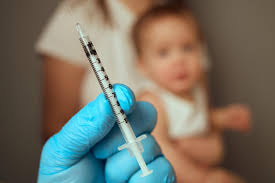
Breaking News
 Dr David Martin - I'm done being polite
Dr David Martin - I'm done being polite
 Palantir Wants to Be a Lifestyle Brand
Palantir Wants to Be a Lifestyle Brand
 Britain Is Manifesting Nigel Farage as Its Next Prime Minister
Britain Is Manifesting Nigel Farage as Its Next Prime Minister
 Max Blumenthal: Charlie Kirk's Story FALLS APART
Max Blumenthal: Charlie Kirk's Story FALLS APART
Top Tech News
 This "Printed" House Is Stronger Than You Think
This "Printed" House Is Stronger Than You Think
 Top Developers Increasingly Warn That AI Coding Produces Flaws And Risks
Top Developers Increasingly Warn That AI Coding Produces Flaws And Risks
 We finally integrated the tiny brains with computers and AI
We finally integrated the tiny brains with computers and AI
 Stylish Prefab Home Can Be 'Dropped' into Flooded Areas or Anywhere Housing is Needed
Stylish Prefab Home Can Be 'Dropped' into Flooded Areas or Anywhere Housing is Needed
 Energy Secretary Expects Fusion to Power the World in 8-15 Years
Energy Secretary Expects Fusion to Power the World in 8-15 Years
 ORNL tackles control challenges of nuclear rocket engines
ORNL tackles control challenges of nuclear rocket engines
 Tesla Megapack Keynote LIVE - TESLA is Making Transformers !!
Tesla Megapack Keynote LIVE - TESLA is Making Transformers !!
 Methylene chloride (CH2Cl?) and acetone (C?H?O) create a powerful paint remover...
Methylene chloride (CH2Cl?) and acetone (C?H?O) create a powerful paint remover...
 Engineer Builds His Own X-Ray After Hospital Charges Him $69K
Engineer Builds His Own X-Ray After Hospital Charges Him $69K
 Researchers create 2D nanomaterials with up to nine metals for extreme conditions
Researchers create 2D nanomaterials with up to nine metals for extreme conditions
Newborn Vaccine Requirement Under Investigation

Health and Human Services Secretary Robert F. Kennedy Jr.'s vaccine panel plans to re-evaluate the mandate.
The current recommendation states that newborns should be vaccinated against hepatitis B within the first 24 hours of birth. The Advisory Committee on Immunization Practices, or ACIP, has delayed voting on updated guidelines due to the controversy.
The vaccine panel voted to recommend testing for hepatitis B in pregnant women as the disease can be transferred from mother to baby. Pharmaceutical company Merck, who recently moved a multi-million dollar facility from the UK to the US, insists the vaccine is safe and effective at birth. Yet, there are no concrete studies to show whether or not the risks outweigh the benefits.
This disease is not airborne nor can be passed through coughing, sneezing, or close contact. There must be an exchange of bodily fluid, and the primary infector here would be the mother (vertical transmission). If the disease cannot be spread through anything other than bodily fluid, why is the medical community insistent on a mandate? Parents should have the ability to chose the best course of action for their baby's health.



